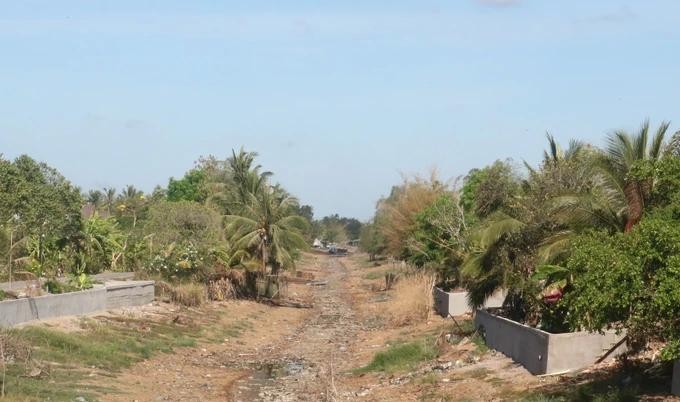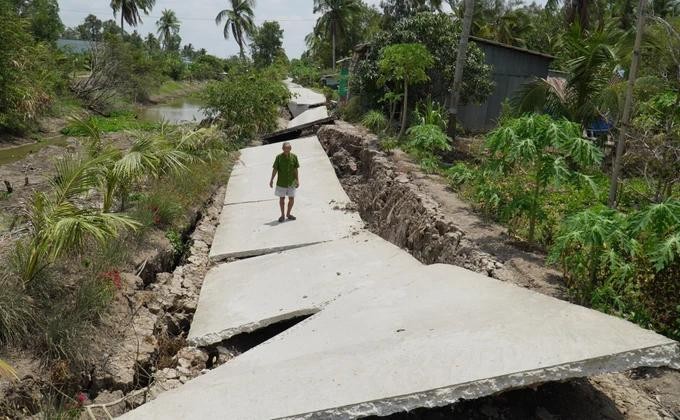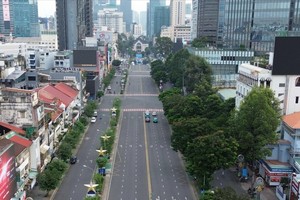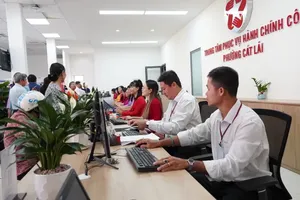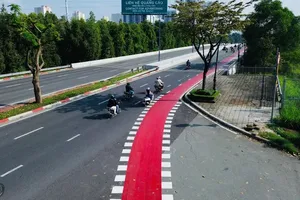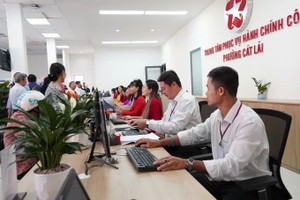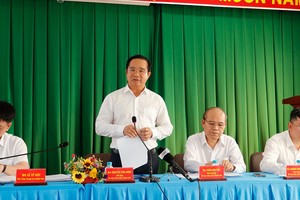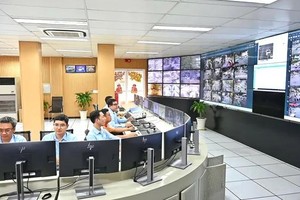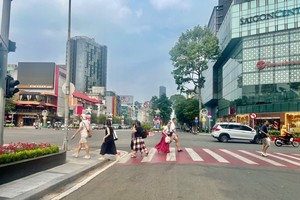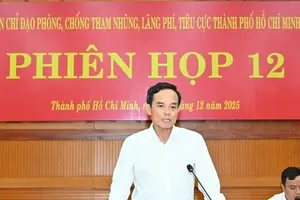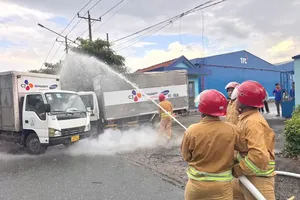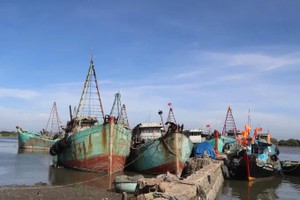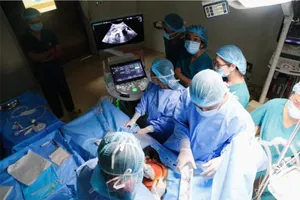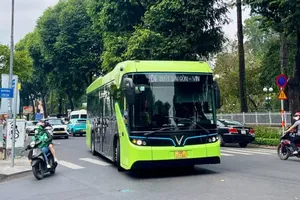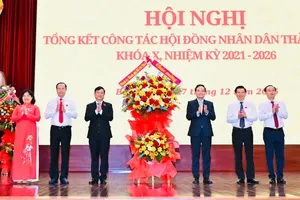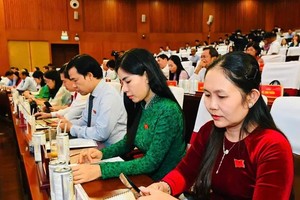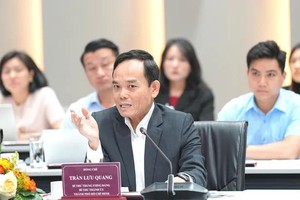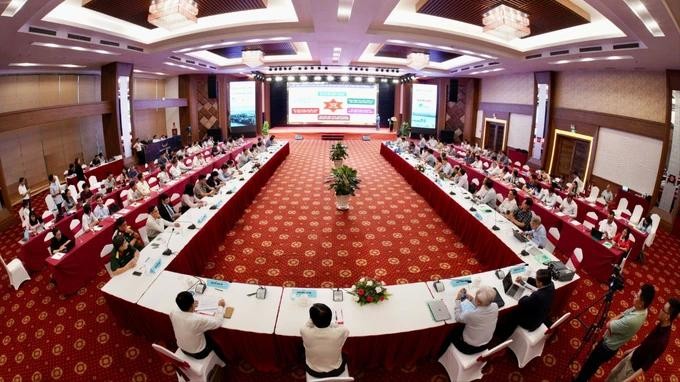
Addressing the seminar, Secretary of Can Tho City Party Committee Nguyen Van Hieu praised SGGP Newspaper for taking the initiative to organize this seminar.
He emphasized the importance of the seminar as Ho Chi Minh City and Mekong Delta provinces have signed many cooperation programs to support sustainable development. The Mekong Delta region provides raw materials for Ho Chi Minh City for domestic consumption and export.
According to the newly approved plan, in addition to developing agriculture, Can Tho City also focuses on the manufacturing and processing industry, increasing trade and services. Along with the development of infrastructure, especially transportation, the development space of the Mekong Delta has many changes, and the distance between localities has been shortened.
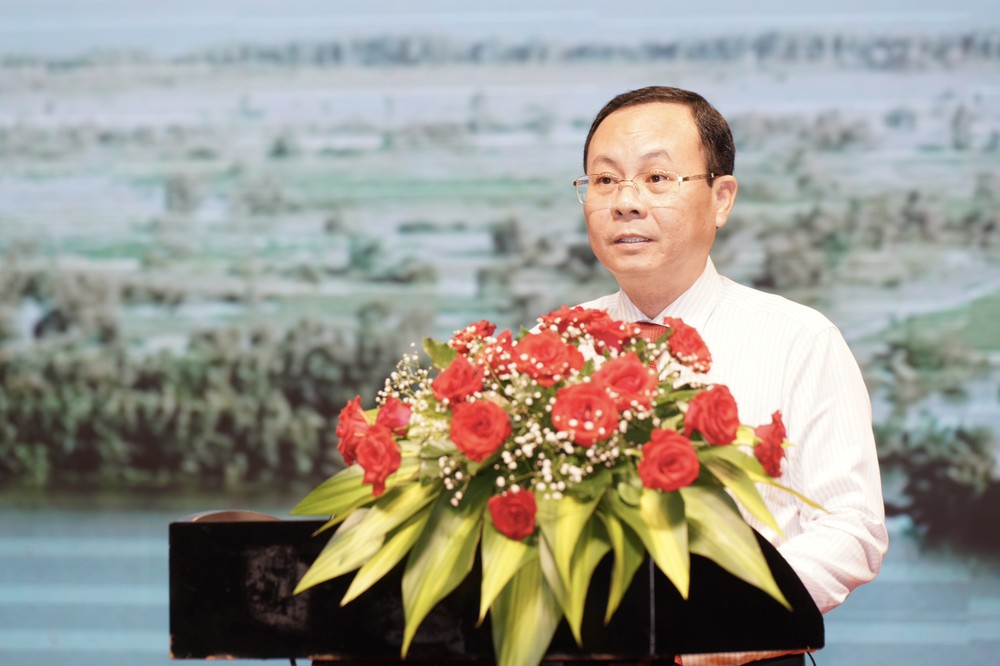
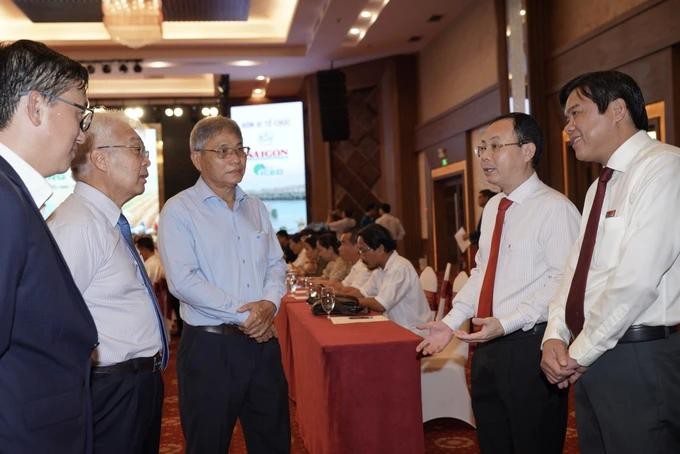
Seeing the important role of the Mekong Delta, in recent times, the Government and ministries have paid great attention and have many guidelines and policies to overcome difficulties and promote strengths and potentials. In particular, the Government issued Resolution 120 in 2017 on sustainable development of the Mekong Delta adapting to climate change. The implementation of this resolution in recent years has brought many positive outcomes, contributing to resolving many challenges in agricultural production in particular and economic development in general.
However, climate change, extreme weather, rising sea levels, declining groundwater and the formation of many hydroelectric dams in the upstream of the Mekong River have worsened subsidence, landslides, drought, saltwater intrusion, lack of water for production and daily activities in the Mekong Delta.
Secretary Nguyen Van Hieu stressed that due to the above-mentioned factors, radical and timely solutions are needed to respond effectively to climate change. In addition to comments on development policies for the Mekong Delta, Mr. Nguyen Van Hieu hoped that experts and delegates would provide additional comments with implications for sustainable and comprehensive development for the region in the coming time.
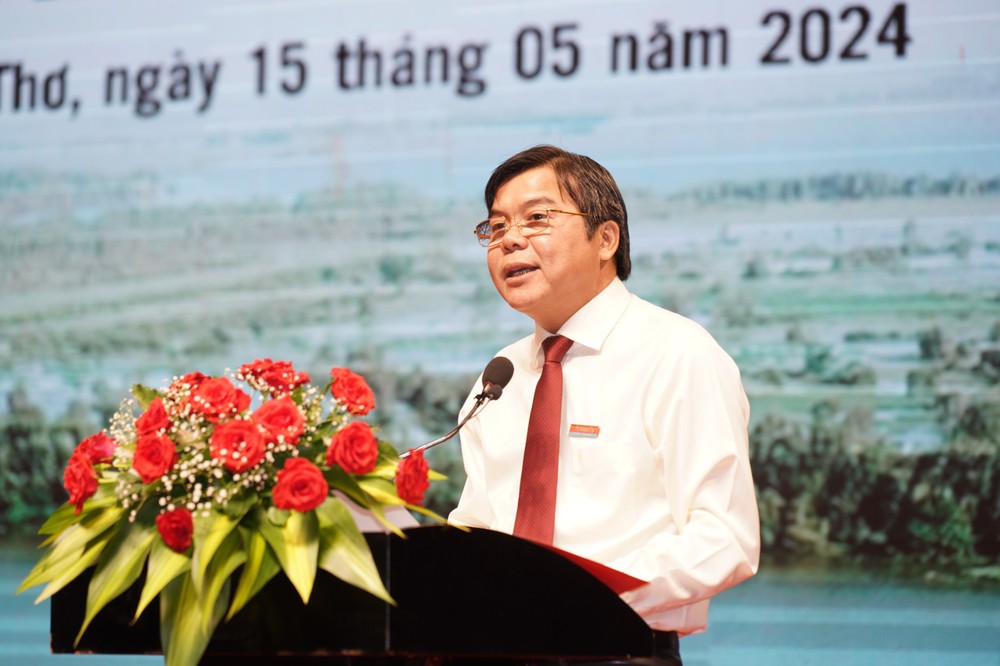

Speaking at the conference, journalist Tang Huu Phong, Editor-in-Chief of SGGP Newspaper, emphasized that the Mekong Delta is known as the rice basket of the country as well as the world. The region has contributed about 18 percent of the national GDP, with more than 94 percent of total rice exports, nearly 60 percent of seafood export turnover and 70 percent of the country's fruit output.
Although it is a key region for national food security, the Mekong Delta is very vulnerable to the impacts of climate change. The effects of drought, saltwater intrusion, and declining groundwater resources, combined with many hydroelectric projects being built in the upstream of the Mekong River have resulted in worse subsidence and landslides and lack of water for production and daily activities.
The whole region currently has more than 800 landslide areas with a total length of more than 1,000km. On average, the region loses 300 to 500 hectares of land each year due to riverbank and coastal erosion. In Ca Mau province alone, from 2011 until now, more than 350km of coastline has eroded, causing the loss of more than 5,300 hectares of productive land, residential land and mangrove forests.
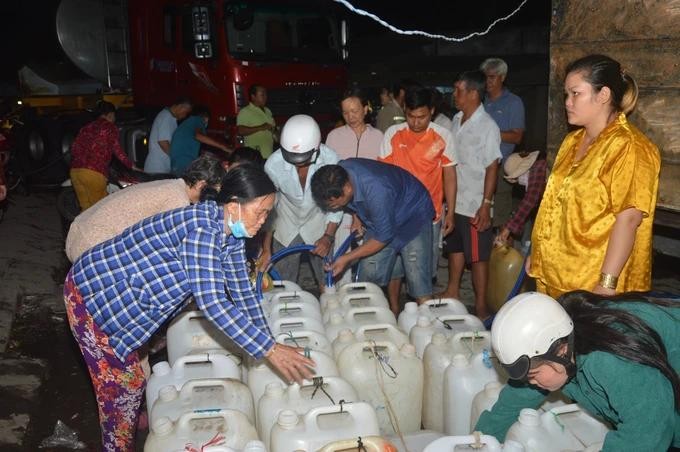
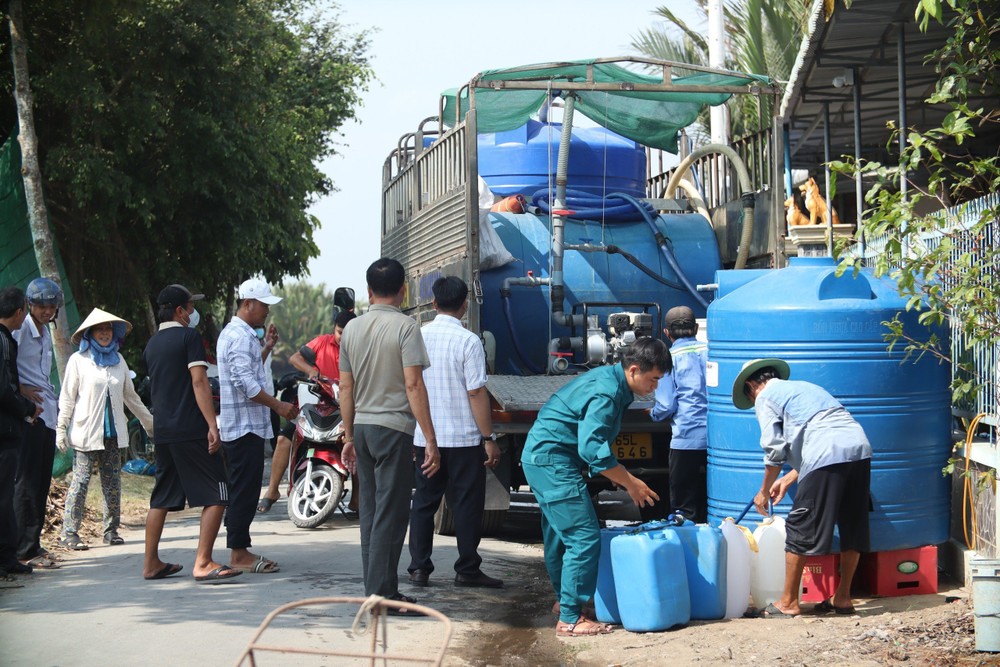
Moreover, journalist Tang Huu Phong said that from the beginning of the 2024 dry season until now, drought and saltwater intrusion have hit the region, and more than 50,000 households in the Mekong Delta have been facing terrible shortages of domestic water.
Worse, nearly 1,000 roads, canal banks, houses, warehouses, and traffic bridges were damaged or collapsed due to subsidence and landslides and thousands of hectares of vegetables lacked irrigation water and died while hundreds of hectares of forest burned down.
According to journalist Tang Huu Phong, the above numbers show that the consequences of climate change are very severe, affecting many aspects of social life. Not only does climate change cause great property and economic damage, but it also threatens the safety and lives of millions of people in the region.
In the long term, the risk of national and global food insecurity is huge. For Ho Chi Minh City, the Mekong Delta is the largest food supplier, so anything that happens to this land will directly affect Ho Chi Minh City. According to forecasts, the level of impact and damage caused by climate change in the Mekong Delta will increase dramatically in the future without immediate solutions.
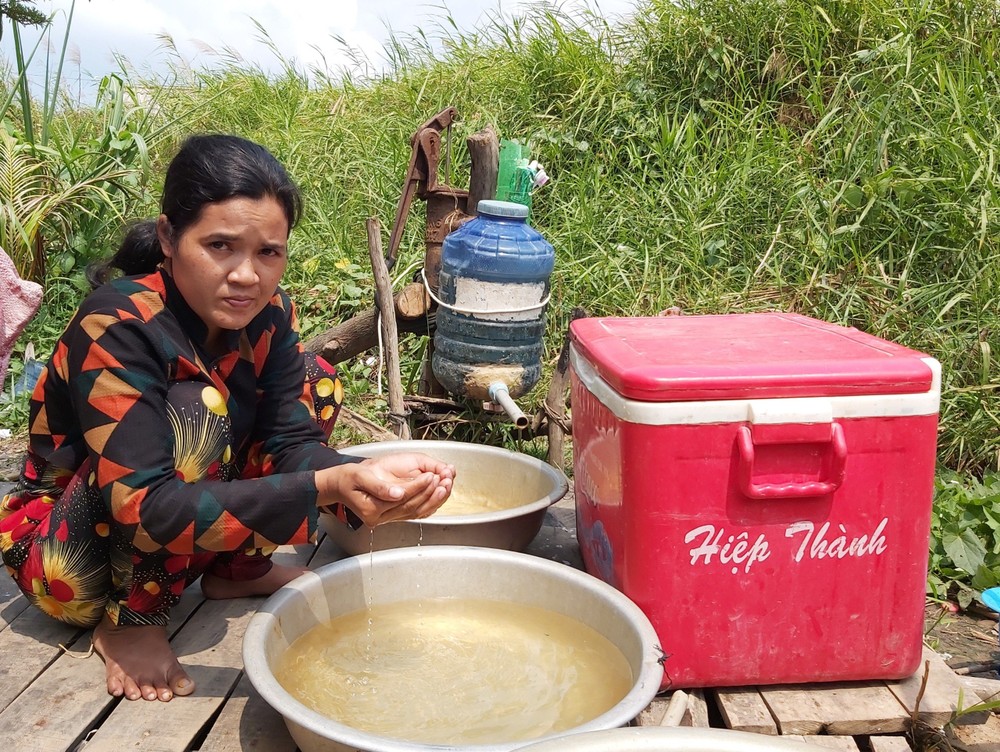
Over the past time, witnessing localities in the Mekong Delta region suffering from severe consequences caused by climate change, drought, and saltwater intrusion, the Party Committee, government and people of Ho Chi Minh City have been heartbroken.
Journalist Tang Huu Phong said that Sai Gon Giai Phong Newspaper, an agency of the Communist Party of Vietnam in Ho Chi Minh City, coordinated with the People's Committee of Can Tho City and the Institute for Circular Economy Development of the City National University to organize the workshop to provide immediate and long-term solutions for the Mekong Delta region’s effective adaptation and sustainable development in the coming time.
Emphasizing the importance of the circular economy, Associate Professor. Nguyen Hong Quan, ICED Director presented the presentation of green economic transformation combined with advanced natural disaster tolerance of businesses and adaptive capacity of communities in the Mekong Delta region.
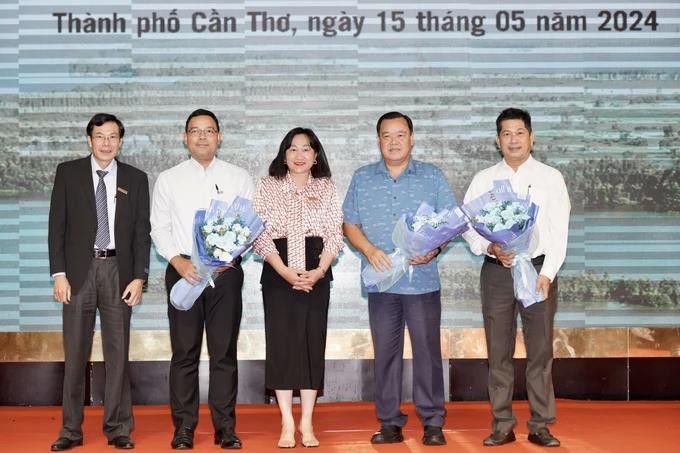
According to Associate Professor Nguyen Hong Quan, the Mekong Delta has great potential to develop a circular economy, such as taking advantage of by-products from shrimp, pangasius fish, rice, and fruit trees. He revealed that a company has researched using enzymes to recover protein from shrimp carcasses and shells or apply wastewater recycling technology in producing high-quality chitin using biochemical methods.
